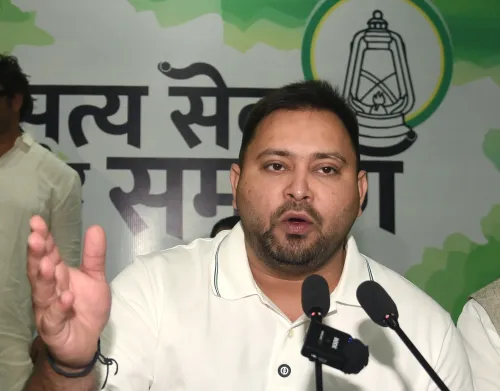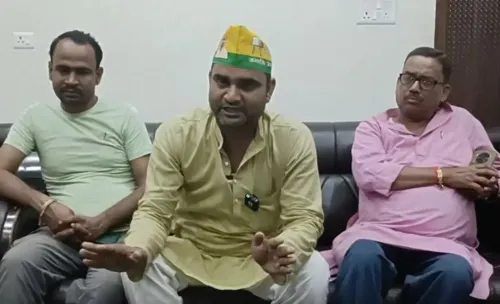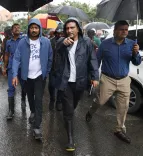Is 'Udaipur Files' Facing Excessive Censorship With 150 Cuts?

Synopsis
Key Takeaways
- ‘Udaipur Files’ faces 150 cuts mandated by the CBFC.
- The Supreme Court approved its release amidst controversy.
- The film highlights the murder of tailor Kanhaiya Kumar.
- CBFC's censorship practices have been criticized for years.
- The ongoing debate on artistic freedom versus censorship continues.
Mumbai, July 9 (NationPress) The Supreme Court has approved the release of the film ‘Udaipur Files’ after denying an urgent hearing for a petition that sought to delay its debut.
This film is centered around the tragic murder of Udaipur tailor Kanhaiya Kumar. The Central Board of Film Certification (CBFC) has mandated a staggering 150 cuts to the film, adding it to the extensive list of films impacted by censorship.
Kanhaiya Kumar was allegedly murdered for posting a social media message in support of Indian politician and Bharatiya Janata Party spokesperson Nupur Sharma, whose remarks sparked the 2022 Muhammad remarks controversy.
Javed, one of the individuals accused in the Kanhaiya Lal murder case, approached the Supreme Court to contest the film's release. The case was heard by a bench led by Justice Sudhanshu Dhulia.
The lawyer representing Javed argued that the film is set to be released on July 11 and predominantly features the police, which could skew public perception. Justice Dhuliyan declined to intervene, suggesting that the matter should be presented to the appropriate bench, thus allowing the film to proceed with its release.
The CBFC has faced significant backlash over the last decade for its stringent censorship, beginning with the tenure of Pahlaj Nihalani. In recent years, it has tightened its control over how films are depicted to audiences.
Films such as ‘Punjab 95’, featuring Diljit Dosanjh, remain unreleased as they await approval. Another film, ‘Phule’, which stars Pratik Gandhi and Patralekha as social reformers, also experienced censorship, with certain language and scenes being removed.
The CBFC has requested over 120 cuts from the creators of ‘Punjab 95’. This film chronicles the life of human rights advocate Jaswant Singh Khalra and highlights a dark period in Punjab's history. Khalra was a bank director in Amritsar during the insurgency, gathering evidence of police misconduct.
In the case of ‘Phule’, which revolves around the social reformers Jyotirao Govindrao Phule and his spouse Savitribai Phule, it also faced delays due to CBFC censorship requests to remove caste-related terminology before receiving a certification.
Anurag Kashyap's 'Kennedy', which has received acclaim at prestigious international film festivals like Cannes, is still pending release after more than a year. Kashyap is familiar with the challenging process of film releases, recalling how 'Black Friday' was delayed for two years due to legal interventions.
Even the recent release of Aamir Khan's film ‘Sitaare Zameen Par’ faced restrictions.
A pivotal moment in the increasing censorship from the CBFC occurred nearly a decade ago with 'Udta Punjab', during Pahlaj Nihalani's tenure, where the filmmakers sought the Film Certification Appellate Tribunal's assistance.
With ‘Udaipur Files’ facing a demand for 150 cuts, the Indian entertainment industry continues to navigate the challenging waters of censorship.








